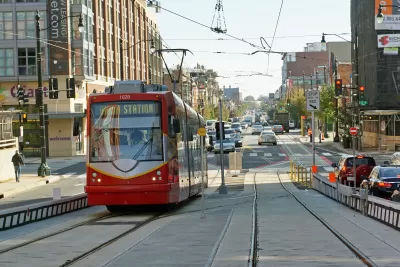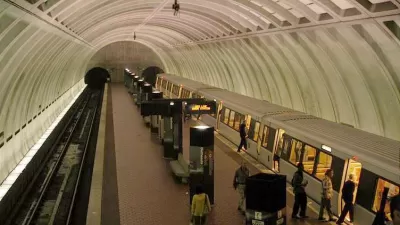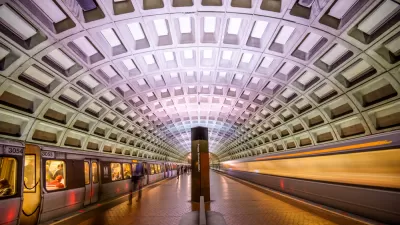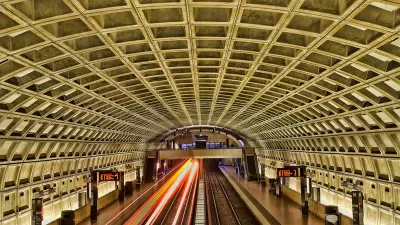It's been six months since the D.C. Streetcar finally opened after years of planning and delays. So far, so good for the performance of the line, and now District DOT has some decisions to make regarding the near future of the line.

"Nearly six months since its long-awaited debut, the District’s first streetcar line in more than half a century is quietly exceeding early ridership projections while avoiding the kinds of mishaps that have placed the Metrorail system under constant and intense scrutiny," reports Martin Di Caro.
Di Caro quotes Leif Dormsjo, the director of the District Department of Transportation, to summarize the accomplishments of the streetcar in its first sixth months. Here are Dormsjo's words, as quoted in the article: "So far we’ve been doing quite well. The running times have improved. I think our customers are pleased with the service. The vehicles are being maintained properly. And we haven’t had any safety incidents."
The good service news comes just prior to a decision expected by the end of August about whether DDOT should increase the frequency of streetcars and expand hours of operations to all seven days of the week (service is currently unavailable on Sundays for maintenance). A decision about whether or not to add a fare to use the streetcar will wait for another six months.
As for the specifics of the ridership numbers reported by DDOT, "70,000 passengers rode D.C.’s five streetcars in June, according to DDOT figures. The weekday average was 2,773, and close to 3,000 passengers boarded streetcars on Saturdays that month." Those numbers exceed the projections for 1,500 average daily riders.
FULL STORY: D.C. Streetcar Quietly Exceeds Low Expectations Six Months In

Planetizen Federal Action Tracker
A weekly monitor of how Trump’s orders and actions are impacting planners and planning in America.

Map: Where Senate Republicans Want to Sell Your Public Lands
For public land advocates, the Senate Republicans’ proposal to sell millions of acres of public land in the West is “the biggest fight of their careers.”

Restaurant Patios Were a Pandemic Win — Why Were They so Hard to Keep?
Social distancing requirements and changes in travel patterns prompted cities to pilot new uses for street and sidewalk space. Then it got complicated.

Platform Pilsner: Vancouver Transit Agency Releases... a Beer?
TransLink will receive a portion of every sale of the four-pack.

Toronto Weighs Cheaper Transit, Parking Hikes for Major Events
Special event rates would take effect during large festivals, sports games and concerts to ‘discourage driving, manage congestion and free up space for transit.”

Berlin to Consider Car-Free Zone Larger Than Manhattan
The area bound by the 22-mile Ringbahn would still allow 12 uses of a private automobile per year per person, and several other exemptions.
Urban Design for Planners 1: Software Tools
This six-course series explores essential urban design concepts using open source software and equips planners with the tools they need to participate fully in the urban design process.
Planning for Universal Design
Learn the tools for implementing Universal Design in planning regulations.
Heyer Gruel & Associates PA
JM Goldson LLC
Custer County Colorado
City of Camden Redevelopment Agency
City of Astoria
Transportation Research & Education Center (TREC) at Portland State University
Camden Redevelopment Agency
City of Claremont
Municipality of Princeton (NJ)





























